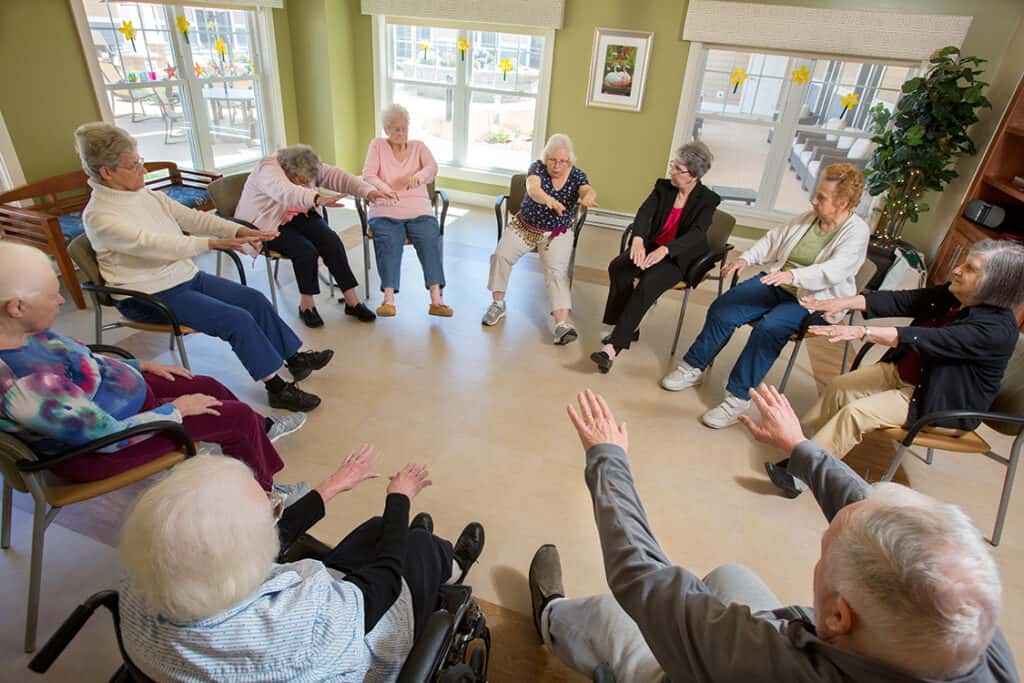Find animal-friendly Assisted Living homes for seniors who love animals.
Find animal-friendly Assisted Living homes for seniors who love animals.
Blog Article
Recognizing Exactly How Assisted Living Supports Individuals With Mental Deterioration Treatment Demands
Helped living facilities are progressively acknowledged for their pivotal function in addressing the complicated treatment demands of clients with mental deterioration. Assisted Living. By providing a structured yet nurturing environment, these facilities not only promote safety and wellness but likewise promote a feeling of autonomy through customized care strategies. Involving activities and socializing chances are important to improving cognitive function and psychological health and wellness. However, the subtleties of just how these aspects engage to develop a supportive community warrant better evaluation, particularly in recognizing their lasting influence on citizens' quality of life.
Overview of Dementia Care
Mental deterioration treatment is significantly crucial as the prevalence of dementia-related conditions increases amongst maturing populations. The problem can differ substantially in its presentation, requiring tailored care strategies to fulfill specific requirements.
Effective dementia care includes a multidisciplinary technique, integrating medical, mental, and social support. Medical care experts, caretakers, and household participants need to collaborate to produce a nurturing environment that advertises the health of individuals with dementia. Key elements of dementia care include personalized treatment plans, cognitive stimulation treatments, and behavior treatments targeted at improving quality of life.
Furthermore, it is important to identify the emotional and emotional challenges faced by both individuals and caregivers. Education and training for caretakers play an essential duty in promoting understanding and empathy, consequently boosting interactions with those affected by mental deterioration. As the demand for dementia treatment remains to increase, the emphasis must continue to be on supplying caring, person-centered treatment that appreciates the dignity and preferences of people living with this condition.
(Charlotte Alzheimer's Care)
Duty of Assisted Living Facilities
Helped living centers play an essential role in offering treatment for people with mental deterioration, offering a supportive setting that stabilizes self-reliance with the necessary help. These centers are developed to provide to the distinct needs of residents, advertising a sense of area while guaranteeing safety and security and well-being.
In an assisted living setup, experienced personnel supply continuous support, assisting with everyday activities such as showering, dressing, and drug monitoring. This level of care is vital for individuals with mental deterioration, who may have problem with these jobs due to cognitive decline. Additionally, centers typically include memory-enhancing programs and social activities tailored to promote cognitive functioning and urge social communication.
The physical atmosphere of assisted living facilities is likewise optimized for safety and security, including safe entryways, well-lit paths, and clear signs to aid locals browse their environments. Additionally, these areas cultivate a feeling of belonging, lowering the sensations of seclusion that individuals with mental deterioration may experience.
Personalized Care Program
To guarantee that each resident obtains the most suitable care, customized care plans are necessary in assisted living centers for people with mental deterioration. These plans are customized to satisfy the distinct needs, choices, and obstacles dealt with by each resident, promoting their dignity and high quality of life.
The growth of a personalized treatment plan usually starts with a detailed analysis conducted by health care professionals. Memory Care. This assessment evaluates the individual's cognitive capacities, physical health and wellness, emotional well-being, and social preferences. Input from relative and the resident themselves is essential, as it gives valuable insights right into their background, regimens, and personal rate of interests
Once the assessment is complete, a multidisciplinary group collaborates to produce a care strategy that outlines certain objectives and interventions. This might consist of medication management, daily living aid, and behavior approaches tailored to mitigate anxiousness or agitation.
Regular reviews and updates to the care plan guarantee it remains relevant as the individual's problem advances. Memory Care. By focusing on customized care, assisted living facilities can improve the total well-being of citizens with dementia, fostering an environment that appreciates their uniqueness while addressing their care requires properly
Engaging Activities and Socializing
Engaging activities and socialization play an important function in boosting the high quality of life for citizens with dementia in assisted living centers. These tasks are made to stimulate cognitive feature, promote emotional health, and foster connections among residents. Structured programs, such as art treatment, music sessions, and memory treatment, provide opportunities for people to share themselves creatively while also causing favorable memories.
Socialization is equally crucial, as it fights sensations of isolation and loneliness that can accompany mental deterioration. Group tasks, including video games, group trips, and communal dining, motivate interaction and assistance residents develop supportive relationships with peers and caregivers. This sense of area not only improves their day-to-day experiences yet also adds to a more secure emotional environment.
Moreover, involving activities can be tailored to individual preferences and cognitive levels, guaranteeing that each resident can participate meaningfully. By producing an atmosphere that focuses on interaction and social interaction, helped living centers can substantially boost homeowners' total psychological health, cultivating a sense of objective and belonging. Eventually, these campaigns are vital elements of thorough dementia treatment, dramatically influencing homeowners' total health and joy.
Benefits of Community Assistance

Furthermore, area support promotes social communication, which is important for cognitive and emotional health. Involving with peers and joining team activities can boost mood and motivate reminiscence, contributing to a higher sense of belonging. This social involvement is essential, as solitude and isolation can aggravate cognitive decline.

(Assisted Living Charlotte)
Verdict
In verdict, assisted living facilities offer as essential atmospheres for individuals with mental deterioration, using organized assistance that promotes both self-reliance and security. The application of individualized treatment plans ensures that each news homeowner's special needs are met, while engaging activities promote social communication and cognitive involvement.
Report this page